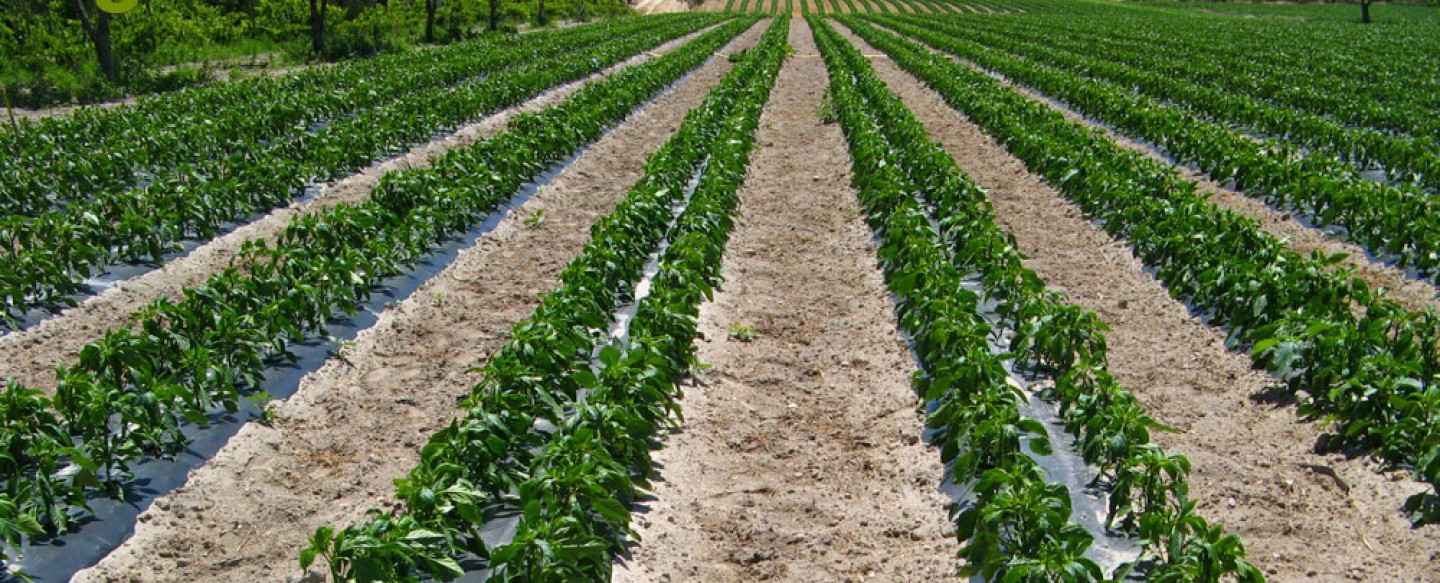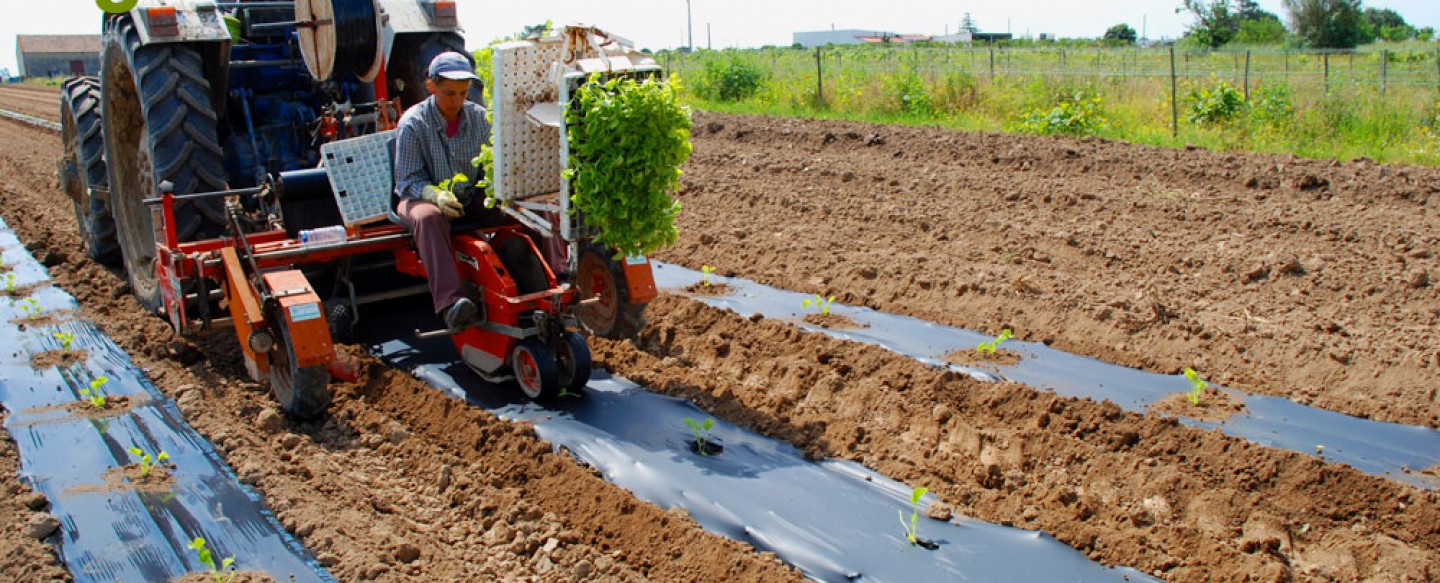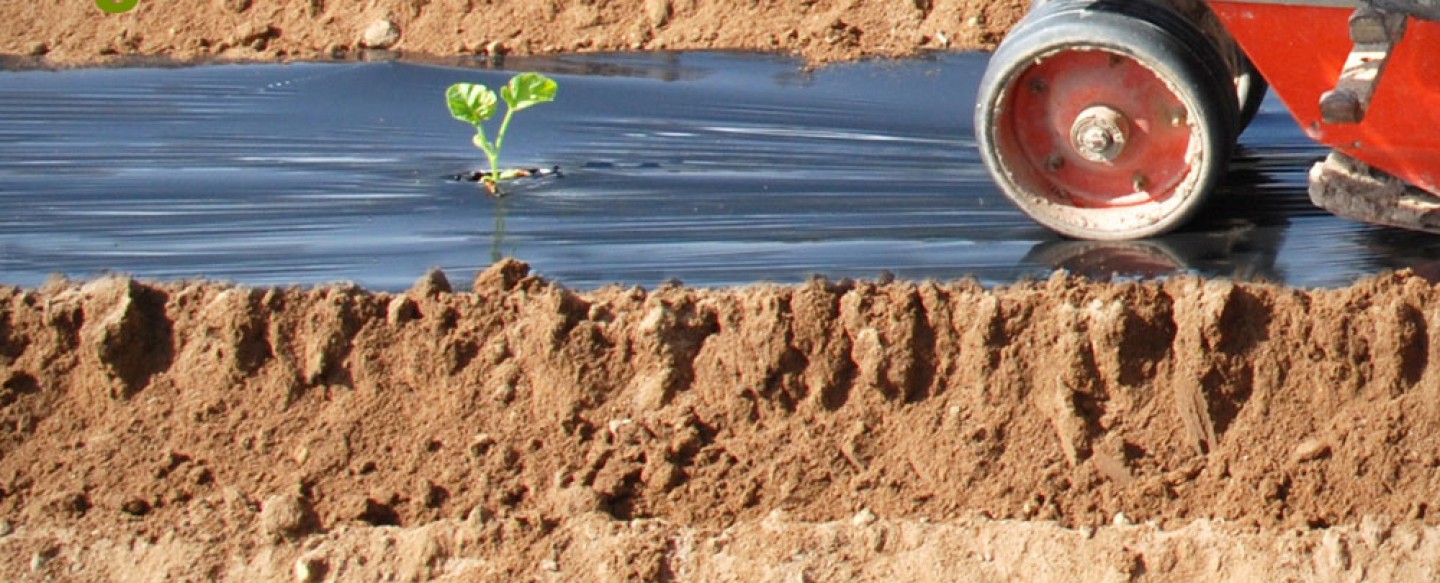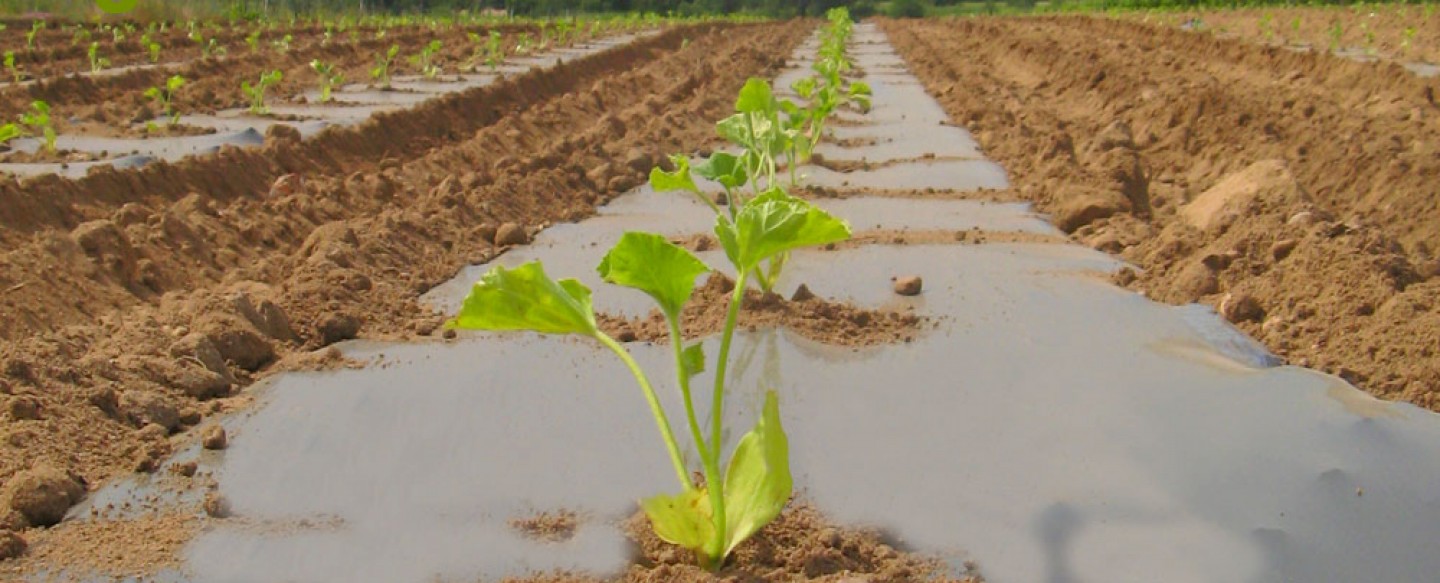O Desafio
Por ano, na agricultura são utilizadas cerca de 545 mil toneladas de filmes plásticos, à base de polietileno (mulch tradicional), em que mais de 136 mil são aplicadas nos solos agrícolas da União Europeia e Suíça.
Útil para ajudar a estabelecer as plantas na fase inicial do seu ciclo de desenvolvimento, acelerando o seu crescimento e impedindo o crescimento de infestantes, o mulch convencional apresenta vários inconvenientes.
A maioria dos plásticos usados são de origem fóssil (polietileno ou PE), sendo um problema devido ao impacto ambiental quando descartado: são depositados em aterros, deixados ao abandono nos terrenos ou até mesmo queimados! Note-se que estes estão contaminados com pesticidas e outros resíduos, e que apesar das ações tomadas pelos agricultores para minimizar o seu impacto, é impossível remover todos os resíduos do plástico, além de que podem demorar séculos a degradar-se.
A Solução
Após 3 anos de investigação e testes realizados em parceria com outra PME industrial, Universidades, Centros de Investigação e utilizadores finais, lançámos o Agrobiofilm® - um mulch film biodegradável no solo.
Fabricado a partir de amido de milho, óleos vegetais e polímeros biodegradáveis, este bioplástico tem a grande vantagem de voltar a ser incorporado no solo, sem prejudicar o ambiente.
Em comparação ao mulch tradicional, o Agrobiofilm® mostrou ser mais eficiente, proporcionando melhor rendimento em certas culturas.
A nível de preparação do solo e aplicação mecanizada, este mulch biodegradável não demonstrou diferenças, tendo ainda a vantagem de não ser necessário retirar no final da cultura, poupando esta operação e custos para o agricultor. Assim, deve ser incorporado no solo no final do ciclo da cultura, juntamente com os resíduos desta. Depois de enterrado vai biodegradar-se completamente, transformando-se em matéria orgânica.
Agricultura para um mundo mais sustentável
O conceito de sustentabilidade tem merecido uma crescente atenção por parte de Governos, empresas e sociedade em geral.
A agricultura é uma área que depende diretamente de recursos naturais como o solo, a água, o sol ou a biodiversidade, fazendo destes um uso intensivo. Desta forma, acreditamos que o uso do Agrobiofilm® neste setor está a promover a sustentabilidade, onde o uso eficiente dos recursos e a redução do seu impacto ambiental são fundamentais.
O Agrobiofilm® pode ser 2 a 3 vezes mais caro que o mulch convencional de polietileno, no entanto quando contabilizado o custo por hectare, os valores são semelhantes: a quantidade de Agrobiofilm® aplicada é menor e o tempo/custo do trabalho para retirar o plástico do campo é anulado.
Para os agricultores pertencentes a Organizações de Produtores, há uma comparticipação de 52,2% no custo do plástico biodegradável (medidas ambientais inseridas nos Programas Operacionais), tornando este filme biodegradável mais barato que o polietileno.
Para mais informações sobre este produto entre em contacto diretamente connosco através de fleximagination@silvex.pt.
Data de Publicação: 01 Jan 2016






